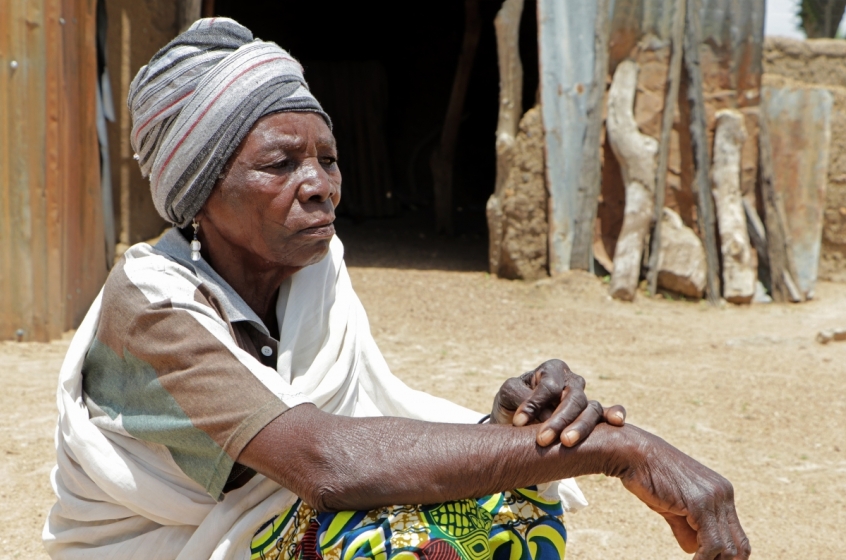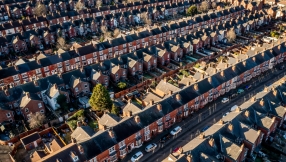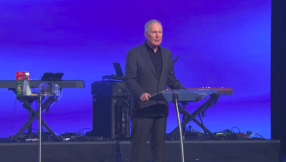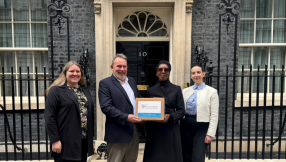
All Nigerians are living in fear of attacks and kidnappings, says Open Doors' Illia Djadi, but for Christians being consistently targeted by Islamist radicals, Christmas is an especially anxious time.
And there's good reason to be anxious after a new report from one NGO said at least 2,200 Christians had been killed in 2020 alone by radicalized Fulani herdsmen and terrorist group Boko Haram.
In another indication of how unsafe Nigeria has become, over 330 boys were abducted just last week from their school in Katsina state.
Hundreds were released a few days later but it's a "tragic reminder" of previous mass abductions, says Djadi, like the 276 mostly Christian schoolgirls taken from Chibok in 2014 and a further 110 in Dapchi in 2018.
Of the Chibok schoolgirls, over a hundred remain in captivity while all but one of the Dapchi girls were released. Leah Sharibu, who was just 14 when she was taken, remains in captivity because she refuses to renounce her Christian faith.
Djadi, Open Doors' senior analyst on freedom of religion in sub-Saharan Africa, said that the lack of security is the biggest challenge facing Nigeria today.
"People are no longer safe in Nigeria," he said.
"If you travel you are risking your life.
"People all over Nigeria travel fearing they will be kidnapped or attacked. They go to bed fearing they will be kidnapped or attacked. They go to church fearing they will be kidnapped or attacked."
The north-east of Nigeria has been blighted by an Islamic insurgency led by Boko Haram, but there is violence across the north-west too in the form of criminal activity, and then in the Middle Belt, radicalised Fulani herdsmen have been attacking Christian communities.
"Now the violence is moving further south," says Djadi.
When President Muhammadu Buhari was elected in 2015, he promised to stop the violence and eradicate Islamist terrorism.
He has "failed" in that, says Djadi.
"There is no political willingness from the leadership to put an end to this."
But Djadi also believes that some people, whether in government or the military, are even "benefitting from the lawless atmosphere in Nigeria" and so "don't want this to stop".
"The lack of security and the radical Islamist insurgency has become a business," he said.
One reason for that, he explains, is because when the militants abduct people, whether children or high profile figures, they then demand ransom money in exchange for their release.
While the violence is affecting all Nigerians, in some instances Christians are being specifically targeted, he says.
In the north-east, they are being targeted because Boko Haram wants to establish a caliphate and Sharia law.
"Christians are the primary target because they are not Muslims. The radicals want to turn them into Muslims by force and if they refuse, they will kill them or turn them into sex slaves.
"They also attack moderate Muslims who don't share this radical interpretation of Islam.
"It's for this reason too that they will attack schools because schools for them are synonymous with Western civilisation. The very name 'Boko Haram' means 'Western education is forbidden' - and 'Western' for them simply means 'Christian'.
"So school is forbidden too and if you go to school you are a clear target."
In central Nigeria, Fulani herdsmen are attacking Christian communities, churches and homes. Some analysts want to frame the violence as simply a conflict between Muslim herders and Christian farmers, but Djadi says this is "simplistic".
"The Fulani militants attack Christian properties and people and churches, but they leave the neighbouring Muslim buildings and mosques untouched," he said.
"They are very selective so there is a clear religious dimension and a clear plan to attack Christian communities in the Middle Belt."
With Christmas upon us, Djadi says Christians across Nigeria are fearful.
"Christians even expect to be attacked around Christmas because it's also about communication," he says.
"These terrorists are well organised and communication is important to them. They abducted the schoolboys from Katsina state, the very home state of President Buhari while he was there visiting.
"They did that to send a strong message to all Nigerians that they can even attack where the president himself is.
"So the timing is not a coincidence; they choose the timing to attract the most attention."
With the violence showing no signs of abating, Djadi is asking Christians in the UK and elsewhere to pray for the security situation in Nigeria.
There are practical things that Christians in the UK can do too, like contacting their MPs to raise awareness and put pressure on the Government to impose targeted sanctions on the perpetrators of the violence, as well as those refusing to put a stop to it.
And Djadi is asking that Christians here pray for the churches in Nigeria providing shelter and practical assistance to thousands of internally displaced people, many of whom are living in church compounds.
"We want security for all in Nigeria and for Nigeria to be a safe country where people can travel freely and where children can go to school without fear of being kidnapped or killed," he said.













